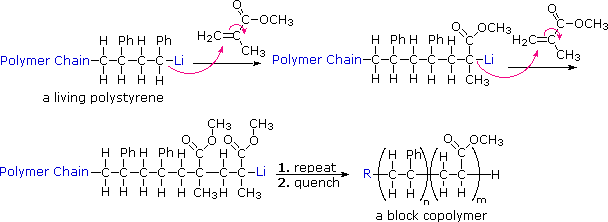Leading Uses of Polymers: Enhancing Everyday Products
Leading Uses of Polymers: Enhancing Everyday Products
Blog Article
Discovering the Varied Applications and Benefits of Polymers in Different Industries
Polymers, with their varied range of properties and performances, have become crucial in different sectors, each gaining unique advantages from their application. From improving safety and security and efficiency in the automotive sector to transforming medical gadgets in the health care industry, polymers play a pivotal role.
Automotive Market Applications
Polymers play a critical function in improving the efficiency and durability of numerous parts within the vehicle field. One popular usage of polymers in the automobile market is in the manufacturing of lightweight parts.

Healthcare Market Benefits
In various medical care applications, the advantages of utilizing polymers are commonly acknowledged for their varied array of advantageous buildings. Polymers play a vital duty in the health care industry because of their versatility, biocompatibility, and cost-effectiveness. One of the primary advantages of polymers in medical care is their ability to be tailored to particular requirements, such as adaptability, sturdiness, and biodegradability, making them perfect for a wide range of medical applications.
Polymer-based products are thoroughly utilized in medical tools, such as catheters, implants, prosthetics, and medication shipment systems, because of their biocompatibility and ability to simulate natural tissues. These materials can reduce the danger of sensitive reactions or beings rejected, improving individual security and results. Additionally, polymers are light-weight, making them appropriate for wearable clinical gadgets and guaranteeing client comfort.
Furthermore, polymers enable the development of ingenious therapy approaches, such as hydrogels for tissue design and nanocomposites for targeted drug delivery. Their simplicity of processing and sanitation makes them essential for maintaining high standards of hygiene in healthcare setups. In general, the diverse advantages of polymers contribute dramatically to advancements in clinical innovation and client care.
Environmental Benefits of Polymers

Additionally, polymers can add to energy cost savings due to their light-weight nature. In industries such as transport, light-weight polymer products can assist minimize fuel consumption and greenhouse gas exhausts. In addition, polymers can make it possible for the development of energy-efficient products such as insulation products that boost power conservation in structures.
Furthermore, polymers play a vital role in reducing water contamination. As an example, making use of polymer-based filtration systems can properly get rid of contaminants and pollutants from wastewater, safeguarding water sources and ecosystems. In general, the environmental benefits of polymers make them valuable assets in advertising sustainability and environment-friendly practices throughout numerous sectors.
Polymers in Electronics and Innovation
Taking into consideration the boosting need for cutting-edge and sustainable options in contemporary industries, the combination of advanced polymer modern technologies in the world of electronics and innovation has emerged as an essential technique for driving efficiency and efficiency. Polymers have actually reinvented the electronic devices sector by enabling the production of lighter, a lot more flexible, and resilient digital devices. From smartphones to clinical tools, polymers play a vital duty in improving item design and capability.
One significant advantage of polymers in electronic devices is their shielding buildings, which aid shield delicate electronic components from ecological elements and electric disturbance. Additionally, polymers are essential in the advancement of adaptable display screens, wearable innovation, and printed electronic devices, supplying unlimited opportunities for creating wise and interconnected devices.
In addition, the use of polymers in electronic packaging has brought about advancements in miniaturization and thermal management, boosting the total efficiency and dependability of digital systems. As technology remains to advance, the convenience and adaptability of polymers web will definitely drive additionally innovation in the electronic devices sector, shaping the future of innovation.
Duty of Polymers in Building and Facilities
The assimilation of innovative polymer products in building and infrastructure projects has changed the method frameworks are designed and constructed in contemporary times. Polymers provide numerous benefits in the construction market as a result why not try here of their adaptability, sturdiness, and cost-effectiveness. One vital function of polymers in building and construction is their use in finishings and sealants, providing protection against ecological factors such as moisture, UV radiation, and corrosion. In addition, polymers are used in the manufacturing of light-weight and high-strength composite materials, enhancing the structural stability of buildings while minimizing overall weight.
Furthermore, polymers play an important duty in sustainable building and construction techniques by enabling the development of energy-efficient structures. Protecting products made from polymers aid manage interior temperatures, reducing the demand for heating and cooling systems and eventually lowering energy intake. The use of polymer-based composites in facilities tasks such as bridges and roadways improves their longevity and minimizes maintenance expenses. In general, the consolidation of polymers in building and infrastructure showcases their considerable impact on modern design methods.
Verdict
Finally, polymers play an essential duty in different industries such as automotive, medical care, environmental, electronic devices, and building. Their functional homes make them linked here beneficial in producing ingenious services and products. From enhancing fuel effectiveness in lorries to improving clinical gadgets, polymers use many advantages. Furthermore, their influence on decreasing waste and advertising sustainability highlights their value in modern-day applications. The widespread use polymers shows their considerable payment to progressing technology and boosting lifestyle.
Report this page